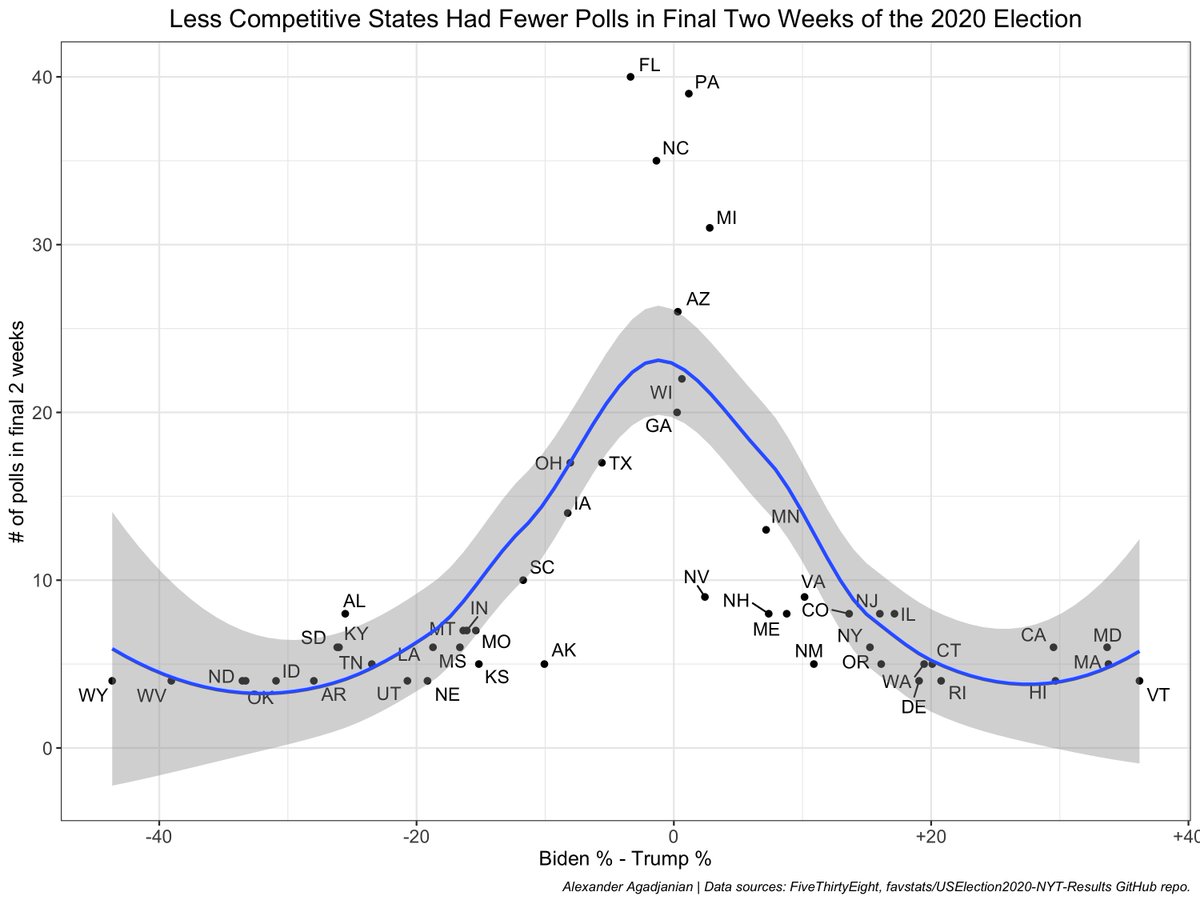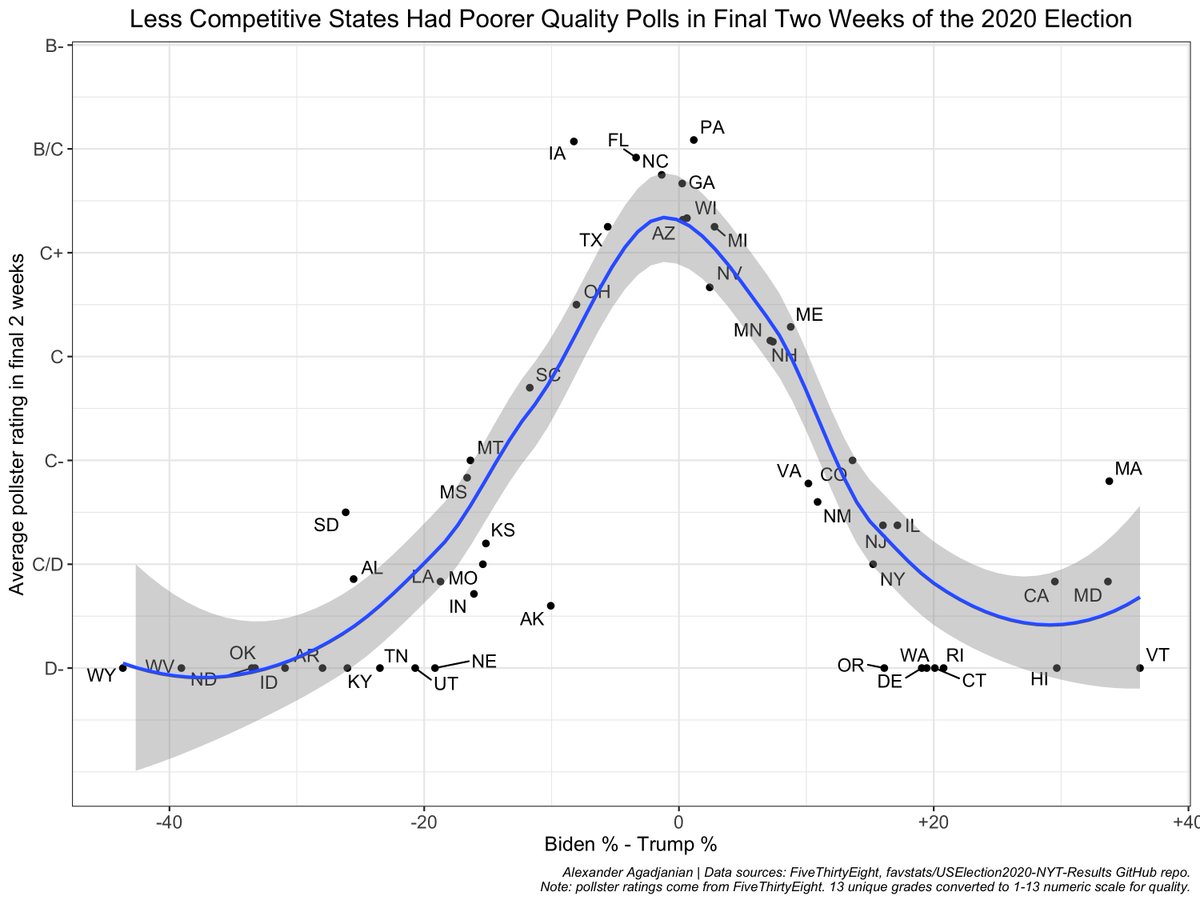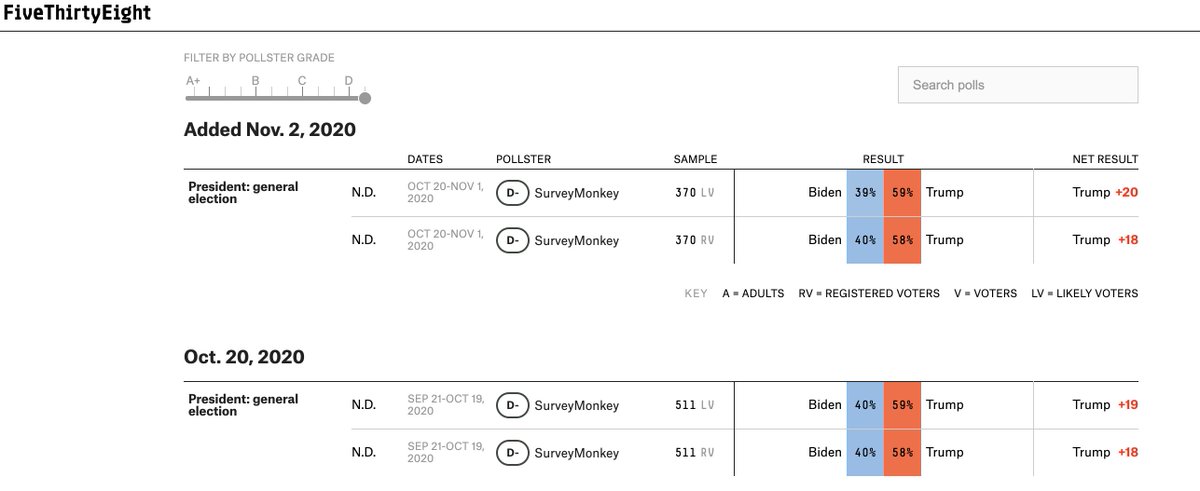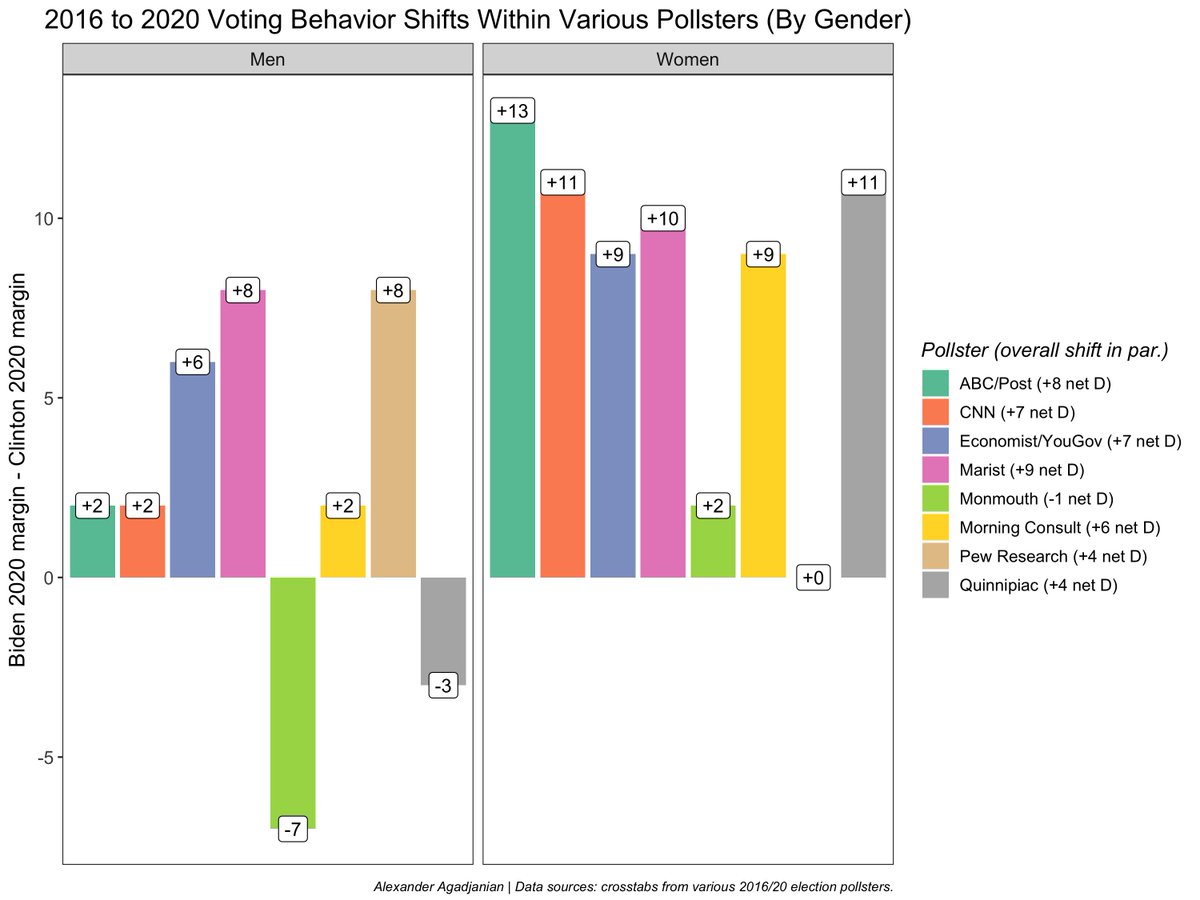
Really valuable and careful work here examining how to ask gender on surveys. Importantly, more inclusive question design/response options does *not* cause noticeable signs of backlash in survey behavior (even though 56% of Americans in 2018 say they oppose nonbinary options).
https://twitter.com/pewresearch/status/1361068201606537218
In an experiment, compared to traditional single q on male/female, 2-step q (sex assigned at birth + current gender identity) better captured nonbinary respondents and did not affect 1) question nonresponse, 2) survey breakoff, or 3) views toward the surveyor (i.e. Pew).
Ultimately the post concludes that "asking about sex in addition to gender wasn't necessary." Key takeaway is validating the move from...
- original q: "Are you male or female?"
- to new gender q: "Do you describe yourself as a man, a woman, or in some other way?"
- original q: "Are you male or female?"
- to new gender q: "Do you describe yourself as a man, a woman, or in some other way?"
One broader thought: this is the kind of survey methods work that is crucial (underpins the data in so much of social science research) but that is too often lacking and undervalued.
• • •
Missing some Tweet in this thread? You can try to
force a refresh









